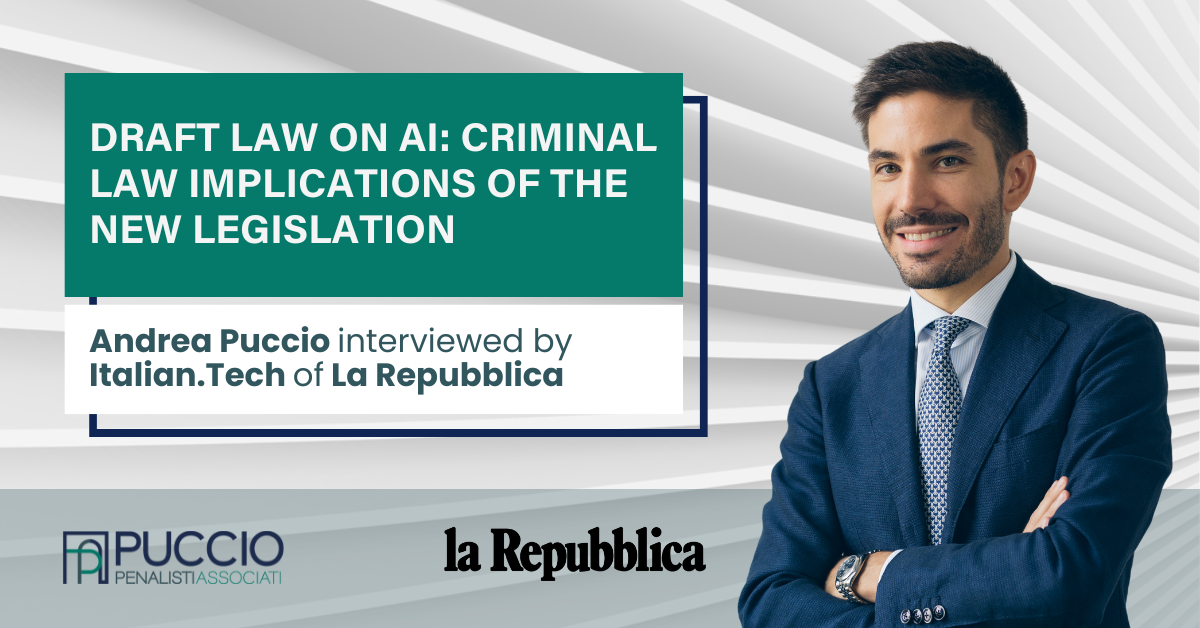The Draft Law on Artificial Intelligence, approved by the Italian Senate on March 20, defines the legal framework and the regulatory guidelines for the use of AI, with the aim of balancing technological innovation and the protection of fundamental rights. Among other aspects, the bill addresses complex legal issues, including its criminal law implications.
In this regard, our Founding Partner, Andrea Puccio, has contributed to an in-depth analysis of the Draft Law, examining its impact on criminal law in an interview featured in Italian.Tech of La Repubblica.
During the interview, Andrea provided a comprehensive overview of the legislative interventions in the criminal field, explaining that the Draft Law intervened along two main axes: firstly, by delegating powers to the Government for the introduction of new AI-related offenses, also concerning the regulatory framework established by Legislative Decree No. 231/2001; secondly, by incorporating specific aggravating circumstances in the Criminal Code for offenses committed through artificial intelligence.
For further insights, the full article is available, in italian, here.
